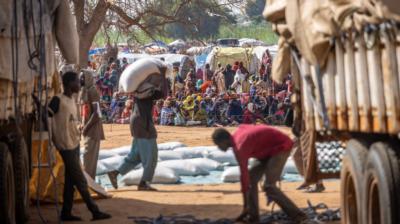The 2006 Presidential and Parliamentary Elections in Uganda: Institutional and Legal Context
Timeframe: Oct 2004 - Dec 2006
Funder: NORAD
Lise Rakner
Professor at University of Bergen and Associated Research Professor
Electoral processes begin long before elections actually take place and requires a long time horizon. As an indicator of the effectiveness of institutions of accountability, in this project we analyse the extent to which 'accountability institutions' manage to stem executive dominance when put to the test of parliamentary and presidential elections in Uganda in 2006. The project analyses the development of democratic processes in Uganda by focusing on institutions aimed at securing democratic accountability. The empirical focus is the political developments in the period before, during and after the 2006 elections. We examine four sets of institutions charged with ensuring an impartial and fair electoral process: the institutions comprising the electoral channel, the party system, the parliament, and the judiciary. The study is designed to allow comparisons with findings from similar research projects carried out in Zambia and Malawi. The research project is a collaboration between Makerere University (Department of Political Science and Public Administration and Department of Public and Comparative Law) and the Chr. Michelsen Institute (CMI). As part of the collaboration, a website is established where different kinds of data, analysis and inputs will be made available during the project period.
Programme
Political Institutions in Africa. The Quest for Democratic Accountability
Jan 2003 - Dec 2004




![Corona überleben: Die Figur der:s Überlebende:n als Trägerin von Hoffnung und Angst in den Politiken einer Krise im Werden [Surviving Corona: The figure of the survivor as bearer of hope and fear in the politics of an emerging crisis]](http://www.cmi.no/img/400/18259-Corona-und-mediale-ffentlichkeiten.png)




